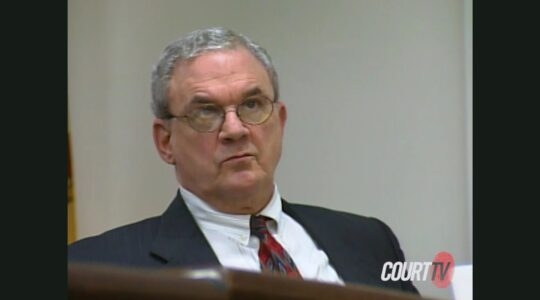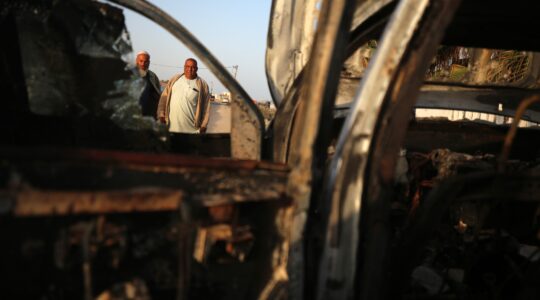ROME, Sept. 23 (JTA) — Rafael Scharf, who died last week in London at age 89, worked tirelessly to preserve the memory of the vibrant world of Polish Jewry that was annihilated in the Holocaust. A writer, historian and respected public figure, Scharf strove to build bridges between Poles and Jews and promote the re-emergence of Jewish life and culture in Poland after the fall of communism. "He took upon himself the task of being the guardian of the memory of what was the heart of interwar European Jewry — Krakow," the British writer Anna Karpf recalled in an obituary. "He wrote obsessively about it, as if he might restore its inhabitants to life by the sheer vividness with which he recalled them." Scharf was born in Krakow in 1914. He became a lawyer and committed Zionist before leaving Poland in 1938 for London. In his new home, safe from the Nazi occupation, Scharf embarked on a varied career as a printer, art dealer, historian and writer. He remained deeply immersed in British, Polish and Jewish intellectual life. He helped found the Jewish Quarterly, Britain´s leading Jewish intellectual journal, and was instrumental in setting up the Institute of Polish Jewish Studies, founded in Oxford in 1984, as well as its scholarly annual, Polin. In 1993, he helped establish the Center for Jewish Culture, which opened its doors in a former synagogue in Krakow´s old Jewish quarter. Scharf came to see himself as one of the last representatives of the rich, multi-faceted world of pre-war Polish Jewry. Universally known by his nickname, Felek, he visited Krakow frequently and became a mentor for young Polish scholars, artists and intellectuals — Jewish and non-Jewish alike. The Polish government honored him with the Commander´s Order of Merit of the Polish Republic for his work in fostering Polish-Jewish understanding. "Crucial to his stance as a reconciler was his love for and understanding of Poland and its culture," said British critic and scholar Antony Rudolf. "This enabled him to speak truths to Poles that were unacceptable when spoken by Jews for whom Poland is nothing but a graveyard — and to Jews when spoken by Poles in denial about the Polish Jewish tragedy."
Writer Rafael Scharf dies at 89
Advertisement





